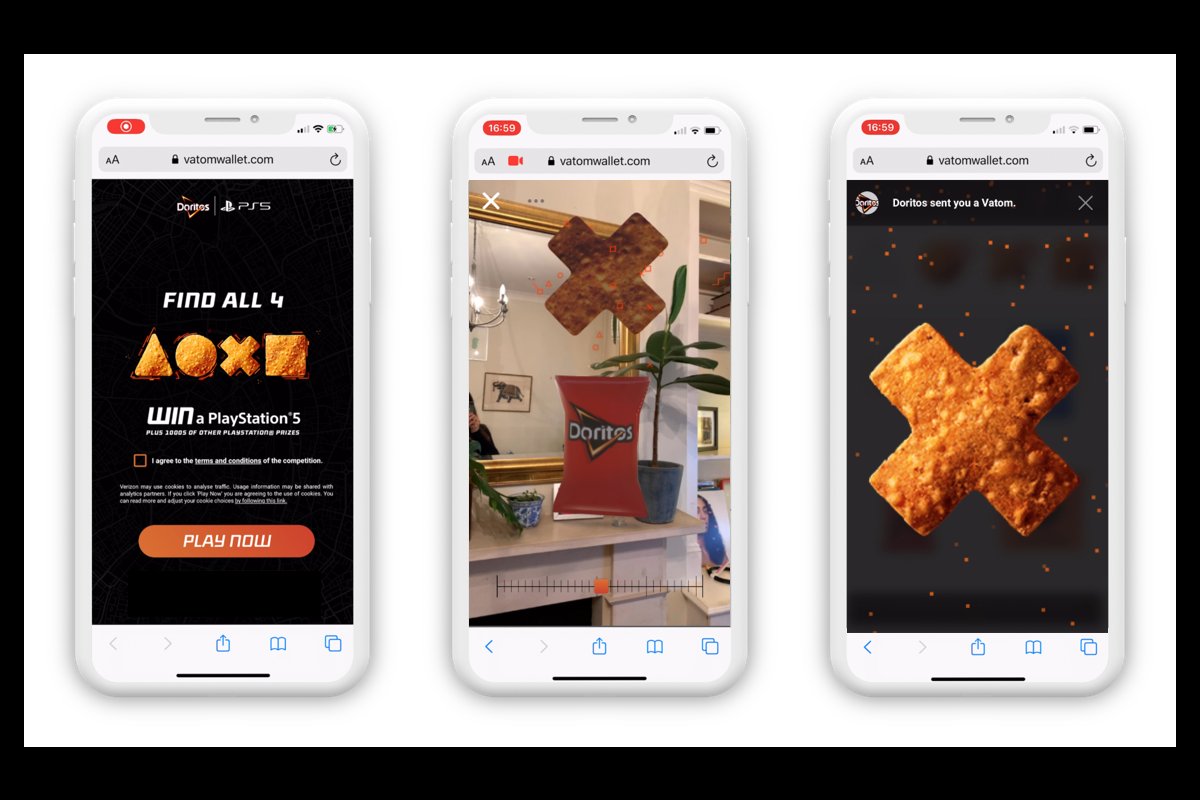Background and objective
In the midst of community safe-distancing, Doritos wanted to broaden mass appeal and strengthen brand love, especially amongst Gen Zs, by leveraging gaming.
Execution
With Verizon Media, the brand promoted an interactive AR game using programmatic techniques.
Verizon Media’s branded content division RYOT Studio worked with Doritos to launch a custom-made virtual AR game, Doritos Quest, localised for the Philippines. Using augmented reality (AR) and blockchain technologies, the game featured 'Vatoms', virtual objects that players can interact with.
The AR game ran from April 5 through 30 and challenged gamers to hunt for Doritos chips, shaped to match the four iconic symbols found on a Playstation controller and placed into virtual Doritos packs. Due to pandemic restrictions, the game, originally developed as an outdoor activity in other markets, was adapted to allow people to hunt for the packs in and around their own homes. Packs contained either Playstation symbol chips or an instant-win prize, which would then be stored in a digital wallet. There were 4,000 prizes, and players had to collect all four virtual chips and instant-win redemption cards for a chance to win a PS5, a PS5 Dualsense controller or a pack of Doritos.
Verizon Media developed reach and awareness by targeting various relevant audience segments. Banner ads, complemented by native standard and video ads, were launched through Verizon Media’s inventory including owned-and-operated platforms such as Yahoo, and on other platforms.
The company continuously updated the bid strategy, focusing on key audience acquisition drivers such as top-visited sites and mobile devices that drove higher conversion volumes. Periodically, the campaign refreshed ad visuals and copy to optimise toward user action (such as an ad featuring a countdown clock) to boost clickthrough rates (CTRs) and conversion.
Ads were also served to Verizon Media’s first-party interest segments, such as snacks, groceries, and gaming consoles, as well as custom audiences modelled after purchase receipt segments that included online groceries and gaming products. The campaign also leveraged lookalike audiences modelled after Doritos’ existing customer base. Retargeting of users who had previously clicked on the ads or 'Enter Now’ links also helped push users down the conversion funnel.
In addition, Doritos tapped local gaming influencers on their social channels.
Results
Registration for Doritos Quest had to be closed even before the end of the campaign, as registrations reached planned maximum capacity ahead of the scheduled timeline. With more than 19,000 registered gamers, the campaign exceeded the target KPI by almost 10% before the early close of registrations. In just over two months, the campaign and its lead-up quickly scaled to reach more than 15% of the country’s internet users—over 11 million users in the Philippines and over 140 million impressions.
Optimisations helped improve CTR rates by up to 50%, and along with retargeting, boosted conversions, resulting in a 30% increase in CTR. Backed by machine-learning on Verizon Media’s DSP, the CTR was 30% higher than the average industry benchmark in the Philippines, and CPC (cost per click) was 40% lower, surpassing original KPIs.











